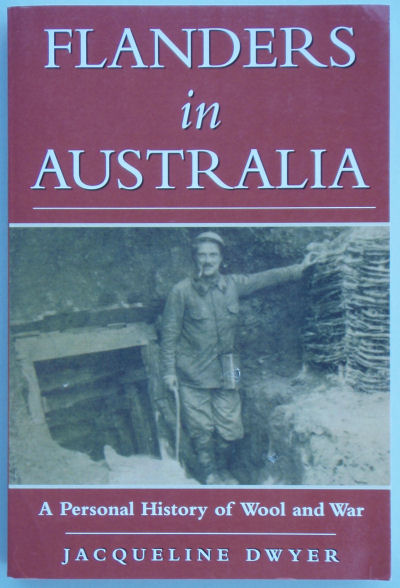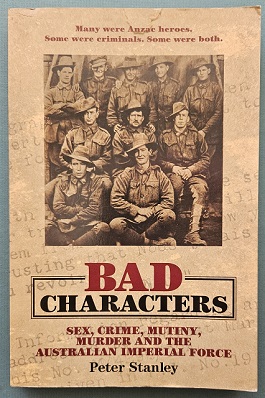Description
Title: Flanders in Australia – A Personal History of Wool and War
Author: Dwyer, Jacqueline
Condition: Near Mint
Edition: 1st Edition
Publication Date: 1998
ISBN: 0864179693
Cover: Soft Cover without Dust Jacket – 224 pages
Comments: This delightful book makes a considerable contribution to our knowledge of the history of the French (and Belgians) in multicultural Australia in the nineteenth the twentieth centuries. Jacqueline Dwyer is the grand-daughter of Georges and Marie-Therese Playoust, who arrived in Melbourne in 1889. Georges, from Tourcoing in Northern France, was sent here to establish an office for the woolbroking firm of Henri Cauillez et Cie. He was one of a significant number of such woolbuyers who settled in Australia during this period–in many cases never expecting to put down permanent roots. Georges was joined by his brother Joseph, and in 1895 the company office was moved to Sydney. Mrs Dwyer not only recounts the story of her grandparents, but of an extended family and an entire expatriate community which included the novelist Paul Wenz.
With the outbreak of war in 1914, many young men in this community returned to France to serve with the French Army. Among them was Mrs Dwyer’s amiable father, Jacques (1883-1947), who saw action in the bitter years of trench warfare at Ypres, Verdun and the Somme (where he earned the Croix de Guerre). He also served with Australian units and while returning home on leave, in 1917, was shipwrecked when the Mongolia struck a mine. (Mrs Dwyer recounts that he shared a lifeboat with the Australian tennis star Norman Brookes.) Jacques’ brother Marcel, who was commissioned as an officer, was killed in the first battle of the Somme, along with most of his company. Flanders in Australia is enriched by the many poignant extracts from Jacques Playoust’s diaries and letters, and also from those of civilian family members in northern France who were intimately affected by war and occupation. In a very real sense, these men were fighting for their families, homes and businesses in Flanders.
The great strength of Flanders in Australia is its family and even autobiographical content, but Mrs Dwyer has gone beyond family memoir and revealed a broader historical sensibility–researching school magazines, regimental histories, newspapers, biographies and a range of French and Australian scholarly texts. She handles them all with poise and discrimination, and gives her readers a fine summary of the role of Australians in France during the First World War.
The well-grounded work also covers the Second World War, but not with the same depth. Although Mrs Dwyer does a good job recording the role of Dr Louis Gelle (Honorary Consul of France, Perth) and Leon Magrin (editor of Le Courrier australien, Sydney) in rallying the French-speaking community in Australia to General De Gaulle, she makes no mention of the fact that both men were Mauritians. But I’m starting to let my own family background intrude and I have little doubt that Flanders in Australia is destined to be an enduring chronicle of `la francophonie’ in Australia. Read it and enjoy it!
Inscribed and signed by the author on the title page.





